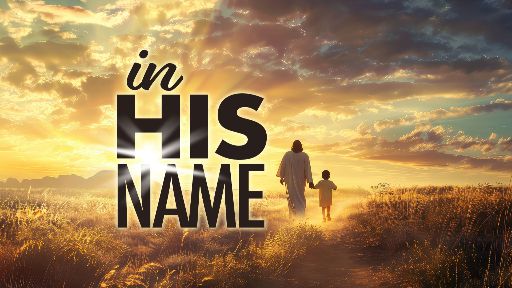-
Struggling To Know Who We Are Series
Contributed by Joseph Smith on Nov 28, 2017 (message contributor)
Summary: Like Hosea's children, we name our selves by our sad history, by our isolation, and by our alienation. But in Christ our Brother all these defects are remedied.
A good many of us, I would guess, are less than happy with our names. What Mom and Dad decided to call us before we had a voice in the matter. Well, I suspect a good many of us would like to change.
Some of us just refuse to use our real names. We go by Butch or Bud or Sissie or some such nickname that seems to have no real meaning, to avoid calling ourselves what is on the birth certificate. A century ago eastern European immigrants came with names like Stanislaus or Woiechzelski, and changed their names because they sounded so foreign.
Others of us shorten our names. Joseph sounds so terribly formal, so it gets cut down to Joe, abrupt. When our children were on the way, we wanted to be careful to select names that could not be shortened or revised, because short names, one-syllable names, sound so abrupt with the last name Smith, and so we came up with Bryan for our son and a couple of years later Karen for our daughter. We thought, there, that's got it, no meddling with those names. And wouldn't you know it, half the time Karen calls Bryan BRY and Karen's closest friend calls her "CARE." "Care" sounds like a package you send overseas. Best-laid plans of mother and father go oft astray.
But now what interests me is the theory that so often names are intended to tell us who we are. Names are often intended by our parents to give some clue as to who we are to be, and maybe that's one reason we sometimes have trouble with them. They sometimes give us an identity we don't really want; they try to impose on us some characteristics we haven't chosen for ourselves.
For example, we name children in honor of a parent or a grandparent. George, Junior; William Third -- sounds like an English king -- little Betty. young Jane, obviously trying to say, “This child is mine, and this child is going to carry on some element of our family tradition.”
Some months ago I went up to Princeton Seminary to take a short course in family systems ministry, and the professors who taught this seminar led us to recognize how in so many subtle ways our families identify us as the carriers of family tradition, sometimes as folks who are expected to finish something left undone. We learned in that seminar that sometimes, in fact, children are named after some member of the family who has died early; and quietly, subtly, without consciously trying to set the pattern, they are expected to replace the person who died. One of our teachers told us that he had known from an early age that he was headed for the ministry: no one pushed it, no one that he could recall urged it, it just felt right. It felt, well, it felt like his own thing. So he grew up, he went off to college, he finished seminary, and on the evening of his ordination, his mother said, "Albert, I just know your Uncle Albert would be proud of you." "Uncle Albert? Who, what? I don't have an Uncle Albert." "Oh well," she said, "I guess I never told you, but you know you were named for a brother of mine, who told us one Sunday morning that he had been called to preach, but that very same afternoon, doing the chores on our farm in North Dakota, got caught in the hay bailer and was killed. Didn't I ever tell you about him?"
We receive, sometimes, our very names, as a mark of our identity – who we are and who it is somebody wants us to become.
The trouble with that is, as I've already hinted, that we may not want to become that. We may not want that identity. And we may well get into a real struggle just to know who we are, who we ought to be, who we want to be.
Imagine, then, what it would be like to own a negative identity. Imagine how hard a struggle it would be if someone were naming us and shaping us in negative ways, trying to root out everything fine and wholesome and trying to make us think of ourselves as worthless and meaningless. How would that be for an identity crisis? How would you ever get past it if your parents, your friends, your community insisted on painting you in devastatingly destructive images?
It happens, you know. It does happen that some of us get off to a destructive start in life, for no other reason than someone has named us negatively. Tell a child often enough that he is a bad boy and more than likely he will prove you right. Tell a race of people often enough that they are inferior and repeat the lie often enough, and some of them, sad to say, will act out a poor self-image. Tag a child early enough as a slow learner or as lazy or as stupid, and you will create the reality your name has named. Some get off to a destructive identity and have to struggle with that, just because they have been named, tagged.

 Sermon Central
Sermon Central



